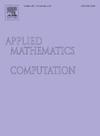结构群体中异质性偏好对具有相关策略的多问题重复社会困境博弈的影响
IF 3.4
2区 数学
Q1 MATHEMATICS, APPLIED
引用次数: 0
摘要
玩家经常同时参与多个游戏。由于相互作用的复杂性和参与者偏好的内在多样性,本文引入了一个针对具有异质性偏好的结构化群体的多问题博弈模型。该模型结合了偏好多样性的几个维度,包括给予不同游戏的相对权重,以及偏好的形式和群体内的分布模式。通过数值实验,我们揭示了结构化群体在两问题重复社会困境博弈的背景下促进合作。比较了两种主要的偏好分布模式。第一种假设是随机均匀分布,这意味着偏好在人群中均匀分布。第二种是特殊分布,即具有相似偏好的玩家更有可能形成集群或群体。我们的研究结果强调,当偏好在两款游戏中所占比重相等时,合作便会更加活跃。此外,偏好的二元形式和群体中偏好的过度变异都阻碍了合作行为的产生和持续。值得注意的是,当深入研究偏好分布的影响时,我们发现,与均匀分布相比,特殊分布更不利于合作。总的来说,本研究通过纳入异质性偏好,丰富了我们对复杂、多维博弈情境下合作现象的理解。本文章由计算机程序翻译,如有差异,请以英文原文为准。
The impact of heterogeneous preferences on multi-issue repeated social dilemma games with correlated strategy in structured populations
Individuals frequently engage in a multitude of concurrent games. Owing to the complexity of the interactions and the inherent diversity in players' preferences, this paper introduces a multi-issue game model tailored for structured populations characterized by heterogeneous preferences. The model incorporates several dimensions of preference diversity, including the relative weight accorded to different games, and the form of preference and distribution patterns within the population. Through numerical experiments, we reveal that structured populations foster cooperation in the context of two-issue repeated social dilemma games. Two predominant preference distribution patterns are compared. The first assumes a random uniform distribution, implying that preferences are distributed evenly across the population. The second is a special distribution, in which players with similar preferences are more likely to form clusters or groups. Our findings underscore that when preferences carry equal weight across the two games, cooperation flourishes most robustly. Furthermore, the binary forms of preference and the excessive variance of preferences in the populations both hinder the emergence and sustainability of cooperative behaviors. Notably, when delving into the impact of preference distributions, we discern that special distributions are less conducive to cooperation compared to their uniform distributions. Overall, this study enriches our comprehension of cooperative phenomena in complex, multi-dimensional gaming scenarios by incorporating heterogeneous preferences.
求助全文
通过发布文献求助,成功后即可免费获取论文全文。
去求助
来源期刊
CiteScore
7.90
自引率
10.00%
发文量
755
审稿时长
36 days
期刊介绍:
Applied Mathematics and Computation addresses work at the interface between applied mathematics, numerical computation, and applications of systems – oriented ideas to the physical, biological, social, and behavioral sciences, and emphasizes papers of a computational nature focusing on new algorithms, their analysis and numerical results.
In addition to presenting research papers, Applied Mathematics and Computation publishes review articles and single–topics issues.

 求助内容:
求助内容: 应助结果提醒方式:
应助结果提醒方式:


